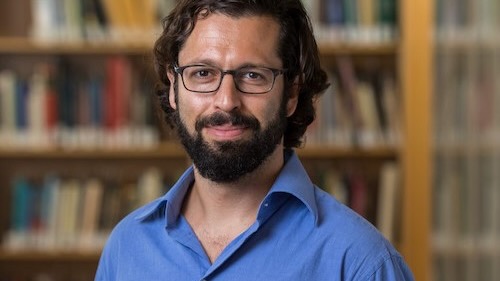CSC - Roman Feiman / What even is a thought? How compositional semantics can inform psychology

CSC - Roman Feiman / What even is a thought? How compositional semantics can inform psychology
Pi Day 2024, the Cognitive Science Colloquium has Roman Feiman, from Brown University, presenting his work with the Language and Thought Lab on infant cognition and the acquisition of semantics.
What even is a thought? How compositional semantics can inform psychology
When we speak, we express thoughts. When others understand the meanings of our utterances, they think the thoughts that we expressed. While psychologists have long been interested in what thoughts are, linguists have made a lot of progress characterizing what utterances mean. In this talk, I'll argue for a methodology for psychologists who are interested in thinking: take up linguists' formal theories of meaning as candidate computational-level descriptions of thought. I will share experimental work that takes this approach, showing how this view of thought can shed new light on long-standing debates in psychology: whether logical reasoning is natural, how children learn words, and whether thought precedes or co-develops with language.

